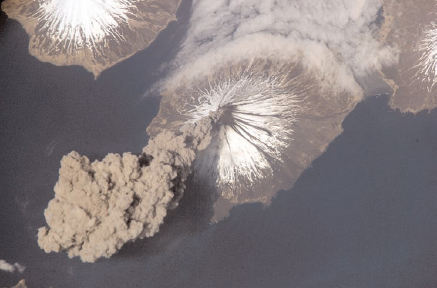Geography Oceanography, and WeatherVolcanoes |
Can volcanic eruptions affect the global climate? |
Most volcanic eruptions do not affect the global climate, although larger ones can cause disruptions—albeit for a relatively short period of time. Large eruptions tend to eject gases and dust high into the stratosphere. From there, prevailing winds carry the particles around the world—sometimes with interesting results.
For example, in 1815, Mt. Tambora on the island of Sumbawa (near Java, Indonesia) erupted, putting out a record amount of ash that briefly changed the world’s climate. Huge amounts of volcanic dust rose high into the atmosphere, reaching around the globe. That year (and for some of the following year), volcanic particles screened out some sunlight, causing the global temperatures to fall. In Europe and other parts of the Northern Hemisphere, winter never seemed to end, with frosts occurring throughout the summer. Hence, 1816 is known as “the year with no summer.”
Scientists used to believe that cooling of the atmosphere could result from volcanic eruptions because of the amount of ash that was thrown up into the air. Now they know, however, that most of these fine particulates return to the Earth within about six months. What actually has a greater effect is the sulfur dioxide (SO2) that volcanoes produce. Sulfur dioxide reacts with water vapor, and the result is a long-lasting haze that blocks out a considerable amount of the Sun’s radiation.

